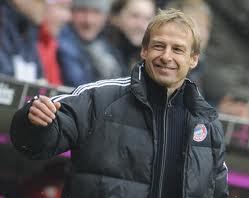 There is a mystery afoot in US Soccer.
There is a mystery afoot in US Soccer.
One I've solved.
After winning a scrappy game against Honduras last night, 1-0, announcers seemed almost disappointed, anxious to get back to their “fire Klinsy” chant should he fail to “get a result” against Ecuador.
What Eric Wynalda, Alexi Lalas, Jimmy Conrad and others had to say mystified me, until I remembered where and how they had played their international soccer.
They were all part of the team built by Bruce Arena, a fine coach, a good man, America's best in many ways. And they feel threatened by what Juergen Klinsmann is trying to do.
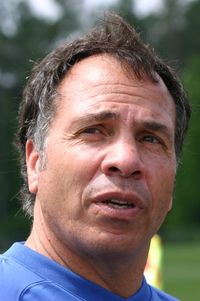 As national team coach Arena taught a game I call “work ball.” That is, long passes down the field, run around the box looking for a place to fall down. Look for a free kick, a set play, a corner. Then, with no one covering you, whip a ball into the box and get a head on it. Meanwhile, defend like demons.
As national team coach Arena taught a game I call “work ball.” That is, long passes down the field, run around the box looking for a place to fall down. Look for a free kick, a set play, a corner. Then, with no one covering you, whip a ball into the box and get a head on it. Meanwhile, defend like demons.
It works, to a point. It got us into the knock-out rounds of two World Cups. It won us qualification four straight times. There are even professional clubs in Europe that play this kind of “route one” soccer. They make money.
But work ball will never get you into a final. It will never win the big prizes. And it's not fun to watch. It doesn't inspire. It's not beautiful.
Klinsmann teaches what I call it play ball. You pass it, back and forth, up and down, always trying to move forward. You take territory by increments, and then the chances come, until eventually the goals come. It's how Brazil plays, how Spain plays, how Barcelona plays.
It takes immense skill to play ball. Work ball developed in England and Germany where the game is played in wet, cold weather, where school kids can only play outside half the year. Few Americans have the skill or the patience for play ball, few American kids become as obsessed with the game at a very young age the way Brazilian and Spanish kids do. Klinsmann believes that if we're taught the beautiful game, if our best kids are working hard on their ball skills 11 months out of the year, that we'll develop the players who can play his system.
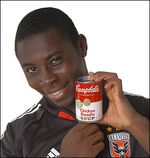
Klinsmann wants them here until they're polished, until they're ready to shine on the big stage. A good example is Brek Shea (below), a midfielder in Dallas he has made a special project. Shea is 21, and if he keeps progressing he could be a star at 25. Or he could be just another big American forward, like Kenny Cooper or Clint Mathis, someone who can score a few but who can't really play, who gets winded and gets sent back home, a failure.
There is a constant tension around the sport between play ball and work ball. That's because work ball sometimes works. Japan beat the U.S. in the women's final with work ball. They were terrors for 120 minutes straight, never slowing down, never giving up. Once in a great while that works. We had all the chances but they got the goal when it counted. It was a monumental upset.
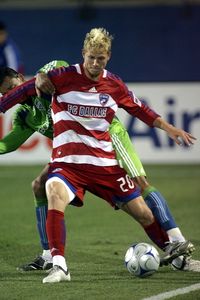
But it's a long-term deal. It won't happen overnight. It won't happen in time for the next World Cup. We might even under perform, with play ball. We're not as good as Mexico, for instance, when both teams play ball. Arena's work ball drove Mexico, and Mexicans, crazy.
Klinsmann likes what he sees out of his younger players. They know the difference between work ball and play ball. They are trying hard. He even has a few players, like Clint Dempsey, who can play that way. So most of the time, when he's watching his team play, he smiles.
His smile speaks volumes. It's a game, the smile says. It's fun, when you know where the ball is going and the other team doesn't, when you can pass it around them, because the ball moves faster than any player can. Eventually, when you play ball, the other team gets tired and makes a mistake. You pounce, you score, you win, and you've earned it.
For those who made their careers in work ball, it doesn't seem right because the results will only come slowly. Arena's players think the only way we can win is to out-work the opposition, because we're not as good as Brazil on the ball, and never will be.
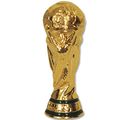
But I believe in Klinsmann. I think we have one of the best coaches in the world. I think if we play ball we'll win more respect in the world of sport than if we keep trying to grind out results.
And I wish Arena's men would get behind him.










